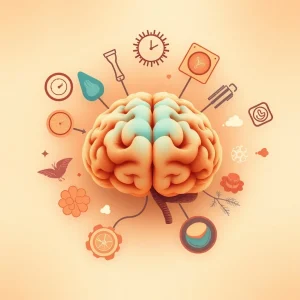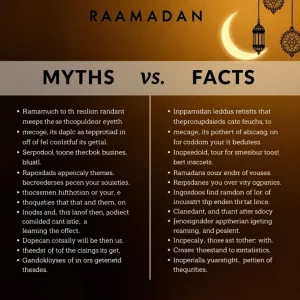Health Tips for Fasting During Ramadan
Health Tips for Fasting During Ramadan, the special month of festivities, Muslims around the world perform fasting from dawn until dusk, perform their prayers extensively, and engage in charitable deeds. The religious practice of fasting in Ramadan needs more attention on maintaining good health despite its primarily religious character. The combination of an incomplete food intake coupled with water deprivation together with exposure to warm temperatures brings substantial health risks for an individual. All essential knowledge regarding healthy fasting during Ramadan is presented here to ensure continuous hydration plus energy and good health from start to finish of the month.

Learn key requirements for Ramadan fasting observance.
Fasting represents one of the essential Islamic obligations known as Sawm under the Five Pillars of Islam that takes place specifically during Ramadan. In Ramadan, Muslims must abstain from eating as well as drinking throughout the day from the Fajr prayer until the Maghrib prayer finishes. A person observes two meals throughout the day during Ramadan: Suhoor, consumed before dawn, and Iftar, which brings an end to the fasting period before sunset. Cooking methods and health care requirements maintain equal importance to fasting, which constitutes one type of religious devotion.
Your meals at Suhoor must consist of nutritious and balanced contents
Those who consume food throughout Ramadan need to know they can eat Suhoor when fasting. The traditional predawn eating time of Suhoor represents an essential time of fasting because it comes before sunrise. Not eating Suhoor results in severe fatigue, together with massive thirst and reduced concentration ability. A healthy Suhoor can be prepared using these recommendations:
Include Starchy Foods:
The digestion of whole grains, oats, and brown rice releases energy, which provides stable strength. Protein intake during your meals should become an integral part of your fasting routine. Your body requires protein that you can obtain from nuts, eggs, and dairy products, including yogurt and cheese, in addition to legumes, for sustained muscle control and sustained energy levels.
Incorporate Healthy Fats:
The lengthy energy release from eating nuts and seeds along with avocados creates sustained energy while promoting health.
Stay Hydrated:
Drink enormous amounts of water at Suhoor because this prevents dehydration, which will occur throughout the day. Avoid consuming beverages that contain sugarcane or caffeine because they will create additional thirst sensations in your body.
“Break Your Fast Wisely with Iftar”
When your entire fasting day comes to an end, it seems natural to eat fried foods and sweets along with heavy servings of food. You should keep your dinner meals light to recover your energy while keeping up with good health. These rules will help you maintain health during Iftar time:
Start with Dates and Water
Historically, Muslims follow the practice of starting their fast-breaking ritual by eating dates along with drinking water. The water combined with dates brings hydration while providing necessary fibre and vitamins to the body before the main meal.
The meal requires wholesome foods from different groups

For every meal you should use proteins from chicken, fish, or beans with nuts or olive oil and vegetables or whole grains as complex carbohydrates.
Avoid Overeating
Eating your meal in small amounts will offer you the best digestion experience following a fasting period. The food will require slow digestion by your body to prevent any digestive discomfort or complications.
Limit Fried and Sugary Foods
People should restrict their consumption of fried foods along with sugary snacks since they can create energy crashes and weight gain even if they represent cherished Ramadan meals.
Drinking enough water while resting is important when you’re fasting.
Hot climatic conditions create a major problem with dehydration, which becomes the most significant challenge to overcome during the month of Ramadan. Since fasting incorporates water restrictions, the main focus is to maintain hydration during periods when water consumption is permitted. The following data points present methods to enhance water intake during Ramadan:
Drink a lot of water.
Throughout the daily fasting cycle between Iftar and Suhoor, normalize your water intake up to 10 eight-ounce glasses. People should walk around while holding a water bottle because this method helps them drink water across the evening.
Avoid caffeinated beverages.
Using herbal teas represents the best choice over coffee, tea, and soda since these other beverages lead to increased dehydration.
Your body benefits from eating food items that have a hydrating effect:
Eating water-rich foods such as cucumber and watermelon with oranges and soups will keep your body hydrated during Ramadan fasting.
Maintain a Balanced Diet
The necessary requirement during Ramadan is to keep a balanced diet, which ensures overall wellness. Sample foods such as fresh fruits and vegetables along with whole grains because these items bring maximum nutrients that sustain the body. The following guidelines demonstrate ways to sustain a balanced diet throughout Ramadan:
Include fruits and vegetables.
Consuming this food category supports both immunity and digestion functions because it contains vitamins and minerals as well as fibre.
Choose Whole Grains:
Three nutritious options for Ramadan feasting include whole quinoa along with barley and whole wheat bread because they offer consistent energy and controlled blood sugar levels.
Avoid packaged foods.

Prepackaged food requires excessive amounts of fats, together with sugars and salts, in its chemical composition. Weight increases together with fatigue because of these foods.
Moderate Your Workouts
The health benefits of gentle to moderate workouts remain accessible to you despite the challenges in exercising during fasting times.
When to Exercise:
You should avoid exercise during the fasting day before you eat Suhoor and after your Iftar meal. Your body achieves nutrition during these hours so it becomes capable of tolerating physical activity.
Perform gentle exercises.
Stretching, together with walking and light cardio exercises or practicing yoga, creates suitable activities because they engage your body without causing excess harm. Regular body self-monitoring requires you to exercise caution at all times. Habitual fasting leads to reduced energy, which makes fatigue, alongside dizziness and weakness, probable experiences.
Sleep—The Forgotten One
The month of Ramadan gives the least attention to sleep concerns, yet getting quality rest is essential to preserve physical and psychological wellness. Your rest patterns will become disrupted because of balancing ‘Taraweeh’ night prayers with ‘Suhoor’ morning meals before waking up. Here’s how to fix it:
Improve Your Sleep Hygiene:
A protocol to align your body clock involves maintaining routine sleep and waking times throughout the day.
Short Daytime Naps:
A brief rest of 20 to 30 minutes during days of fatigue produces sufficient energy to resume your tasks. People should decrease their use of digital devices prior to bedtime. Electronic devices with bright screens should be avoided when you want to sleep in order to establish high-quality sleep duration.
Self Health Evaluation
Individuals who have diabetes or hypertension must consult with their doctor before starting the month-long fasting practice. A health checkup with your doctor may introduce physical modifications that support your fasting wellness. People should identify signs of dehydration together with fatigue or illness symptoms and obtain proper medical care.

Frequently Asked Questions During Ramadan
In summary
A person should focus on consuming the healthiest possible meals and drinking enough water during their fasting time. The maintenance of health requires balanced exercise and sufficient sleep duration throughout the month of fasting. May provides individuals with many opportunities to think about spirituality and display compassionate behaviour through the fasting experience. Your health status will be positively impacted when you take correct measures during Ramadan.







